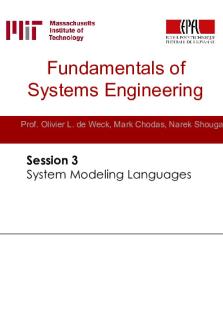K.P. Jayaswal - Lecture notes 3 PDF

| Title | K.P. Jayaswal - Lecture notes 3 |
|---|---|
| Course | Art Historiography III |
| Institution | Jamia Millia Islamia |
| Pages | 2 |
| File Size | 62.7 KB |
| File Type | |
| Total Downloads | 63 |
| Total Views | 131 |
Summary
K.P. Jayaswal...
Description
K.P. JAYASWAL (1871 -1937) Kashi Prasad Jayaswal was born in Mirzapur (U.P.) in a Vaishya family and was educated at Oxford. He practiced law in the Calcutta High court, but later decided to make Patna his home, where he became a good friend of Rajendra Prasad, Mazahar-ulHaq and Syed Hasan Imam. His passionate love of the country did not find favour with the British authorities who declared him to be a dangerous revolutionary. His deep conviction in the glory of India’s past exceed the limits of historical objectivity. His main field of activity was research in Indian history and culture which found in him such a strong advocate that most of his conclusions appear to be biased. He had a good knowledge of Sanskrit which enabled him to be a sound epigraphist and a numismatist; He attempted to decipher the Hathigumpa inscriptions of Kharavela of Orissa. He was a staunch nationalist who believed in thy high ideals and traditions of the country, He would not stand believed Western scholars on any aspect of India's past, and he attacked them bitterly. Jayaswal stands foremost among those Indian historian who were swent off their feet in the torrential flow of national sentiments. His writings make good reading but bad history. We accuse Macaulay as exuberant and excessive but Jayaswal surpassed him in this respect. He was so obsessed by the glory of India’s past that even in the absence of any solid Evidence he would make a cursory remark the foundation of a great historical discovery. For example, to prove the point that India was ready for self-government in the 20th century, he would argue that democracy was nothing new to India and that it existed and functioned very well in ancient India. In his most famous work Hindu Polity, he has shown how a representative form of government was a normal feature of India's past, and how the form of government was not despotism but constitutional monarchy in which the authority of the king was limited by the law of dharma. He goes to the extent of saying that the republics in ancient India were not much different from the republics of modem times. It is in this thrust of modem concepts and institutions on the situations of the past that he appears to be victim If chauvinism which has no parallel in history. In his History of India, A.D. 150 to A.D. 350 (1933), he makes heroes of the Nagas, who have hardly been known in history, as the national liberators. When he translated a part of the Buddhist text, Manjusri-
Mulakalpa, which contained a confused list of kings who had ruled over Northern India, he could not think of any other title to the work than an imperial History of India (1934) His writings assume o the me character more of fiction than of history. Thus, Jayaswal belongs to those school of Indian historians who were ultra-nationalists, and who were prepared to sacrifice truth for serving the national cause. They subordinated history to politics m order to rouse national sprit.
Jayaswal, along with Swami Dayanand Saraswathi, Swami
Vivekananda, Mrs. Annie Besant and others believed that ancient India had reached a very high degree of moral, spiritual and cultural level. They even believed that in the fields of science and technology as well. India had attained a position that could be compared to the European achievements of nineteenth century. Jayaswal reminds us of Coulange's dictum that patriotism is a virtue, but history is a science, and that the two should not be confounded....
Similar Free PDFs

K.P. Jayaswal - Lecture notes 3
- 2 Pages

KP 3 B - KP3
- 2 Pages

Kp motor 3 fasa
- 5 Pages

Lecture notes, lecture 3
- 5 Pages

Lecture notes, lecture 3
- 8 Pages

Notes#3 - Lecture 3 notes
- 49 Pages

Lecture notes, lecture 3
- 59 Pages

3 - Lecture notes 3
- 7 Pages

PROPOSAL KP
- 13 Pages

Lecture Notes, Lecture Exam 3
- 15 Pages

LECTURE 3 Management lecture notes
- 35 Pages

CIV1000 - 3 - Lecture notes 3
- 4 Pages

Chapter 3 - Lecture notes 3
- 6 Pages
Popular Institutions
- Tinajero National High School - Annex
- Politeknik Caltex Riau
- Yokohama City University
- SGT University
- University of Al-Qadisiyah
- Divine Word College of Vigan
- Techniek College Rotterdam
- Universidade de Santiago
- Universiti Teknologi MARA Cawangan Johor Kampus Pasir Gudang
- Poltekkes Kemenkes Yogyakarta
- Baguio City National High School
- Colegio san marcos
- preparatoria uno
- Centro de Bachillerato Tecnológico Industrial y de Servicios No. 107
- Dalian Maritime University
- Quang Trung Secondary School
- Colegio Tecnológico en Informática
- Corporación Regional de Educación Superior
- Grupo CEDVA
- Dar Al Uloom University
- Centro de Estudios Preuniversitarios de la Universidad Nacional de Ingeniería
- 上智大学
- Aakash International School, Nuna Majara
- San Felipe Neri Catholic School
- Kang Chiao International School - New Taipei City
- Misamis Occidental National High School
- Institución Educativa Escuela Normal Juan Ladrilleros
- Kolehiyo ng Pantukan
- Batanes State College
- Instituto Continental
- Sekolah Menengah Kejuruan Kesehatan Kaltara (Tarakan)
- Colegio de La Inmaculada Concepcion - Cebu


